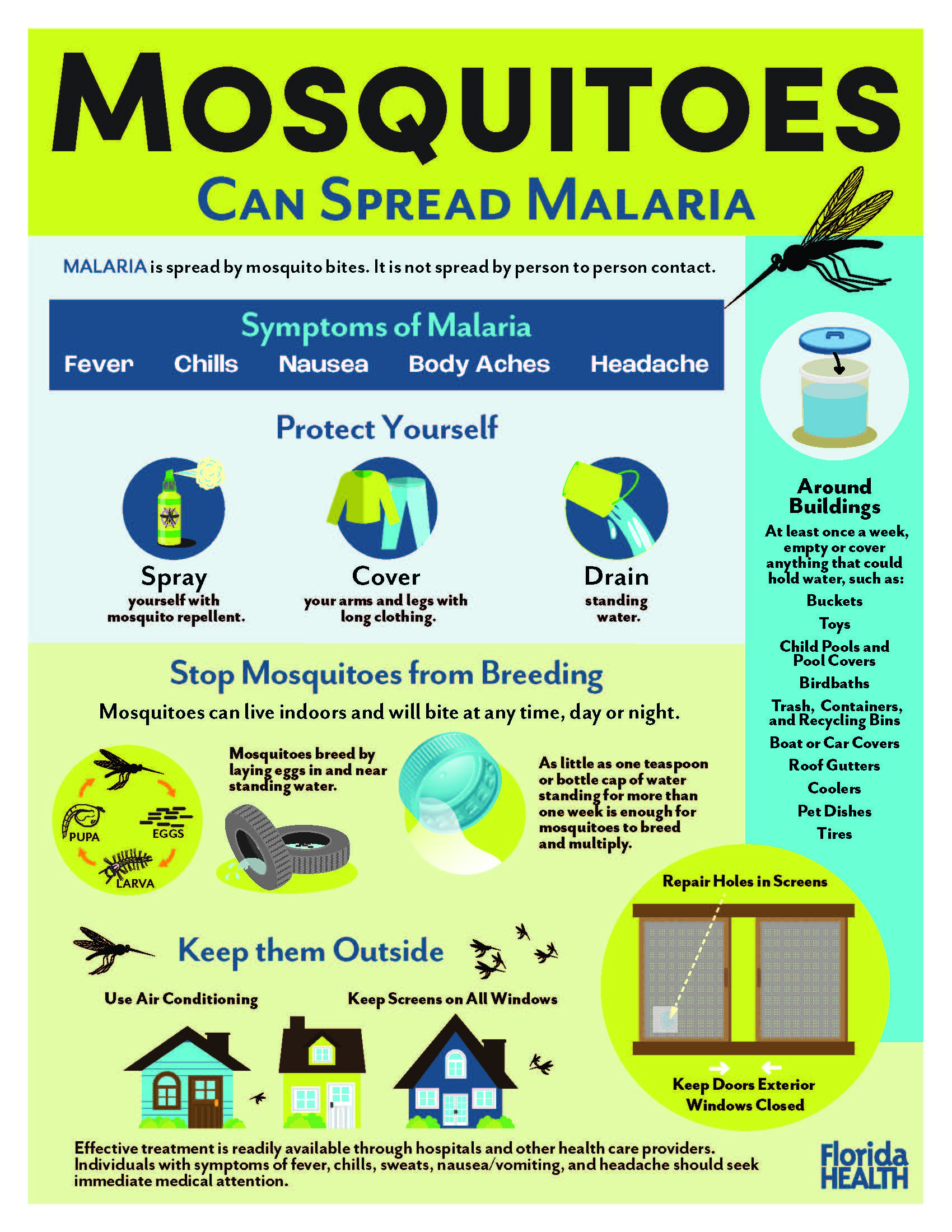The Florida Department of Health issued a statewide alert after four people in Sarasota contracted malaria in locally transmitted cases, coming a day after the U.S. Centers for Disease Control and Prevention issued a similar notice for Florida and Texas.

“All individuals have been treated and have recovered. Malaria is transmitted through infected mosquitoes,” Florida’s Department of Health stated in a release issued June 27.
The agency stated that ground and airborne spraying that targets mosquitos will be carried out around Sarasota, which is near Tampa, to mitigate transmission.
On May 26, 2023, DOH released information on the first confirmed local case of malaria, who was treated and has recovered. Since this advisory was issued, another case has been confirmed and the patient is being treated. Residents in these areas should take precautions, such as wearing long sleeve shirts and pants, applying bug spray, and avoiding areas with high mosquito populations, especially during sunrise and sunset when mosquitos are most active.
The Florida Department of Health (Department) is working closely with local partners and county mosquito control. Aerial and ground mosquito spraying is being conducted in these areas to mitigate the risk of further transmission.
Malaria is not transmitted from person to person. Only infected Anopheles mosquitoes can transmit malaria to humans. This case has been identified as the P. vivax species of malaria, which is not as fatal as other species. Effective treatment is readily available through hospitals and other health care providers. Individuals in this area with symptoms of fever, chills, sweats, nausea/vomiting, and headache should seek immediate medical attention.
“Effective treatment is readily available through hospitals and other health care providers,” the department stated. “Individuals in this area with symptoms of fever, chills, sweats, nausea/vomiting, and headache should seek immediate medical attention.”
It also advised the public to control the breeding of mosquitoes by eliminating any standing water, which is where mosquitoes lay their eggs.
In 2023, Florida has reported confirmed cases in Sarasota County. All individuals have been treated and have recovered. The Department maintains a close collaboration with local partners and county mosquito control in its ongoing efforts.
The largest outbreak in recent Florida history occurred in Palm Beach County in 2003 where there were eight cases.
In 2012, 65 cases of imported malaria were reported in Florida:
- 45 cases (69%) were diagnosed with P. falciparum.
- 16 cases (25%) with P. vivax.
- 2 cases (3%) with P. ovale.
- 2 cases with P. malariae (3%).
All 65 cases were associated with travel or immigration. Reasons given for traveling to a malaria endemic county included: 43% visiting friends and relatives, 29% for business (including missionary and military), 9% of cases were recent immigrants, 8% tourism, 5% students or teachers, and 6% for unknown reasons.
Travelers to high malaria risk countries should talk to their health care provider about malaria prophylaxis and should take personal mosquito control measures.
Those classified as visiting friends and relatives are primarily from malaria-endemic developing countries. Individuals returning to their home country may be at increased risk for malaria. This increased risk has been attributed to high risk behaviors such as longer visit times and staying in villages and remote rural areas without screened windows or air conditioning. Additionally, those visiting friends and family are more likely to neglect personal protective measures against mosquitoes, such as prophylactic drugs, insect repellents, and bed nets. This may be because they believe themselves to be immune to the disease after having lived in an endemic area in the past. However, any immunity they may have had is lost over time, leaving them vulnerable to serious infections when they return to their home country. Antimalarial Drug Guidelines
- Visit a health care provider familiar with travel medicine 4-6 weeks before traveling to countries that are endemic for malaria to obtain helpful travel information, vaccinations for other diseases, and antimalarial drug prescriptions.
- Purchase antimalarial drugs before traveling overseas to make sure that they are effective. Drugs bought in other countries may not be protective.
- Take all drugs as prescribed before, during and after travel for complete protection. Partial use may result in infection.
Malaria Risk and Prophylaxis Recommendations by Country